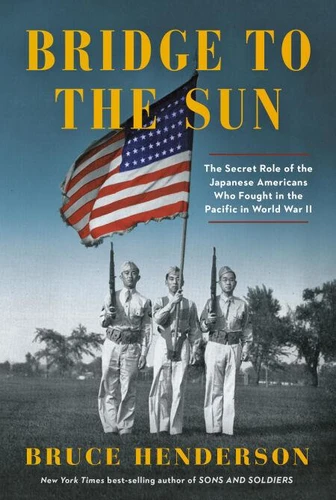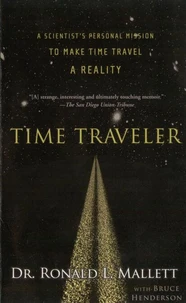Bridge to the Sun. The Secret Role of the Japanese Americans Who Fought in the Pacific in World War II
Par : ,Formats :
Disponible dans votre compte client Decitre ou Furet du Nord dès validation de votre commande. Le format ePub protégé est :
- Compatible avec une lecture sur My Vivlio (smartphone, tablette, ordinateur)
- Compatible avec une lecture sur liseuses Vivlio
- Pour les liseuses autres que Vivlio, vous devez utiliser le logiciel Adobe Digital Edition. Non compatible avec la lecture sur les liseuses Kindle, Remarkable et Sony
- Non compatible avec un achat hors France métropolitaine
 , qui est-ce ?
, qui est-ce ?Notre partenaire de plateforme de lecture numérique où vous retrouverez l'ensemble de vos ebooks gratuitement
Pour en savoir plus sur nos ebooks, consultez notre aide en ligne ici
- Nombre de pages480
- FormatePub
- ISBN978-0-525-65582-4
- EAN9780525655824
- Date de parution27/09/2022
- Protection num.Adobe DRM
- Taille55 Mo
- Infos supplémentairesepub
- ÉditeurKnopf
Résumé
One of the last, great untold stories of World War II-kept hidden for decades-even after most of the World War II records were declassified in 1972, many of the files remained untouched in various archives-a gripping true tale of courage and adventure from Bruce Henderson, master storyteller, historian, and New York Times best-selling author of Sons and Soldiers-the saga of the Japanese American U.
S. Army soldiers who fought in the Pacific theater, in Burma, Iwo Jima, Okinawa, with their families back home in America, under U. S. Executive Order 9066, held behind barbed wire in government internment camps. After Japan's surprise attack on Pearl Harbor, the U. S. military was desperate to find Americans who spoke Japanese to serve in the Pacific war. They soon turned to the Nisei-first-generation U.
S. citizens whose parents were immigrants from Japan. Eager to prove their loyalty to America, several thousand Nisei-many of them volunteering from the internment camps where they were being held behind barbed wire-were selected by the Army for top-secret training, then were rushed to the Pacific theater. Highly valued as expert translators and interrogators, these Japanese American soldiers operated in elite intelligence teams alongside Army infantrymen and Marines on the front lines of the Pacific war, from Iwo Jima to Burma, from the Solomons to Okinawa. Henderson reveals, in riveting detail, the harrowing untold story of the Nisei and their major contributions in the war of the Pacific, through six Japanese American soldiers.
After the war, these soldiers became translators and interrogators for war crime trials, and later helped to rebuild Japan as a modern democracy and a pivotal U. S. ally.
S. Army soldiers who fought in the Pacific theater, in Burma, Iwo Jima, Okinawa, with their families back home in America, under U. S. Executive Order 9066, held behind barbed wire in government internment camps. After Japan's surprise attack on Pearl Harbor, the U. S. military was desperate to find Americans who spoke Japanese to serve in the Pacific war. They soon turned to the Nisei-first-generation U.
S. citizens whose parents were immigrants from Japan. Eager to prove their loyalty to America, several thousand Nisei-many of them volunteering from the internment camps where they were being held behind barbed wire-were selected by the Army for top-secret training, then were rushed to the Pacific theater. Highly valued as expert translators and interrogators, these Japanese American soldiers operated in elite intelligence teams alongside Army infantrymen and Marines on the front lines of the Pacific war, from Iwo Jima to Burma, from the Solomons to Okinawa. Henderson reveals, in riveting detail, the harrowing untold story of the Nisei and their major contributions in the war of the Pacific, through six Japanese American soldiers.
After the war, these soldiers became translators and interrogators for war crime trials, and later helped to rebuild Japan as a modern democracy and a pivotal U. S. ally.
One of the last, great untold stories of World War II-kept hidden for decades-even after most of the World War II records were declassified in 1972, many of the files remained untouched in various archives-a gripping true tale of courage and adventure from Bruce Henderson, master storyteller, historian, and New York Times best-selling author of Sons and Soldiers-the saga of the Japanese American U.
S. Army soldiers who fought in the Pacific theater, in Burma, Iwo Jima, Okinawa, with their families back home in America, under U. S. Executive Order 9066, held behind barbed wire in government internment camps. After Japan's surprise attack on Pearl Harbor, the U. S. military was desperate to find Americans who spoke Japanese to serve in the Pacific war. They soon turned to the Nisei-first-generation U.
S. citizens whose parents were immigrants from Japan. Eager to prove their loyalty to America, several thousand Nisei-many of them volunteering from the internment camps where they were being held behind barbed wire-were selected by the Army for top-secret training, then were rushed to the Pacific theater. Highly valued as expert translators and interrogators, these Japanese American soldiers operated in elite intelligence teams alongside Army infantrymen and Marines on the front lines of the Pacific war, from Iwo Jima to Burma, from the Solomons to Okinawa. Henderson reveals, in riveting detail, the harrowing untold story of the Nisei and their major contributions in the war of the Pacific, through six Japanese American soldiers.
After the war, these soldiers became translators and interrogators for war crime trials, and later helped to rebuild Japan as a modern democracy and a pivotal U. S. ally.
S. Army soldiers who fought in the Pacific theater, in Burma, Iwo Jima, Okinawa, with their families back home in America, under U. S. Executive Order 9066, held behind barbed wire in government internment camps. After Japan's surprise attack on Pearl Harbor, the U. S. military was desperate to find Americans who spoke Japanese to serve in the Pacific war. They soon turned to the Nisei-first-generation U.
S. citizens whose parents were immigrants from Japan. Eager to prove their loyalty to America, several thousand Nisei-many of them volunteering from the internment camps where they were being held behind barbed wire-were selected by the Army for top-secret training, then were rushed to the Pacific theater. Highly valued as expert translators and interrogators, these Japanese American soldiers operated in elite intelligence teams alongside Army infantrymen and Marines on the front lines of the Pacific war, from Iwo Jima to Burma, from the Solomons to Okinawa. Henderson reveals, in riveting detail, the harrowing untold story of the Nisei and their major contributions in the war of the Pacific, through six Japanese American soldiers.
After the war, these soldiers became translators and interrogators for war crime trials, and later helped to rebuild Japan as a modern democracy and a pivotal U. S. ally.






